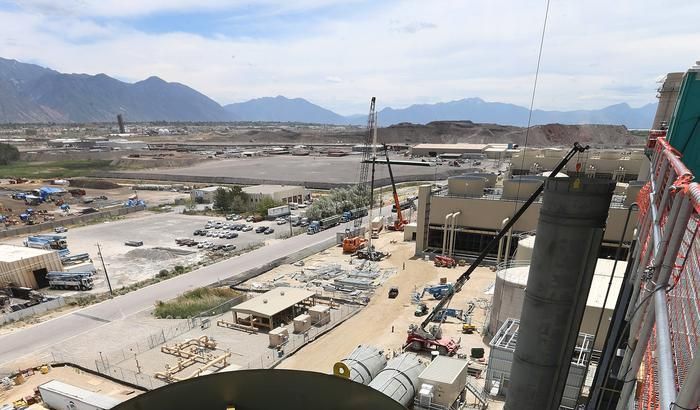U.S. Should Rethink Restrictions On Natural Gas Exports

An emerging Congressional debate about restricting exports of natural gas is largely overlooking the possibility that imposing such restrictions could cause the U.S. to lose an international lawsuit at the World Trade Organization (WTO), and thus lead to lawful economic sanctions against the U.S. by other countries in other sectors of international trade.
Prompting this debate is the sudden domestic abundance of natural gas. Natural gas production in the U.S. has risen rapidly due to recent technological advances. U.S. natural gas prices are now highly competitive internationally, creating an opportunity for U.S. gas producers to export large quantities of liquefied natural gas (LNG).
Lower U.S. prices for natural gas likewise create a comparative advantage for U.S. manufacturers. Some of them are fearful that exports of cheap U.S. natural gas would diminish this newfound advantage. A study for the Department of Energy found that domestic natural gas prices would not increase sharply as a result of exports, but some U.S. manufacturers question this conclusion and are pressing for export restrictions.
So far, the Obama Administration has awarded only three permits for LNG exports to countries with which the U.S. does not have a free trade agreement. More applications are pending. Meanwhile, Congress is weighing the pros and cons of restricting LNG exports legislatively.
Mostly missing in this debate has been acknowledgment that restricting exports of natural gas would contradict current U.S. trade policy of resisting the recent worldwide rise in export restrictions amid growing competition for limited natural resources, in part by toughening WTO rules and by enforcing WTO rulings against export restrictions.
Missing, too, from this debate has been any real awareness that WTO rules apply to trading in oil and gas in the same way they apply to other traded products, and that restricting trade by imposing limits on LNG exports could have decidedly adverse results for the U.S. if those limits were challenged by one or more of our trading partners in the WTO dispute settlement.
In particular, WTO rules prohibit all quantitative restrictions on exports that do not take the form of export taxes (which have not, thus far, been a focus of the unfolding Congressional debate). There is an exception when such restrictions are applied temporarily to prevent or relieve a critical shortage of an essential product, but that is hardly the situation with booming natural gas production in the U.S..
There is an exception, too, where the governmental actions imposing the restrictions are environmental measures relating to the conservation of exhaustible natural resources. This exception is, however, only available where such measures are accompanied by restrictions on domestic production or consumption.
No one is advocating this in the U.S. debate. Even if they were, export restrictions are not excused if they result in arbitrary or unjustifiable discrimination or a disguised restriction on international trade.
All in all, it would be difficult for the U.S. to avail itself of an environmental defense if U.S. restrictions on natural gas exports were challenged in the WTO. Certainly, restricting LNG exports would have environmental implications, but, to date, the professed motive behind the call for restrictions seems entirely economic.
This poses a legal problem for the U.S. under WTO rules not only for any proposed new Congressional export restrictions, but also for the existing administrative process of granting export licenses. WTO rules on the fees and formalities connected with importing and exporting clearly apply to the granting of licenses. To the extent that the Obama Administration delays or denies export licenses on the basis of domestic economic considerations, it risks violating WTO rules.
Further, and significantly, although free trade agreements are allowed as exceptions to the general WTO rule against discrimination in trade among WTO Members, special treatment on this vital product for countries with which the U.S. has FTA’s could invite others to bring a WTO case questioning whether these special arrangements truly fit the WTO definition of a “free trade agreement.”
For the most part, these are the very same arguments the U.S. has itself been making lately in two important WTO cases challenging Chinese restrictions on exports of raw materials for basic manufacturing, and on exports of the rare earth elements critical to much of high-tech manufacturing.
Nothing in the WTO treaty requires WTO Members to be consistent in their trade policies. Few are. In this instance, though, the U.S. is very busily engaged in arguing in the WTO for legal verdicts that would surely be cited against the U.S. in the event of a WTO lawsuit challenging U.S. restrictions on exports of natural gas.
James Bacchus chairs the global practice of the Greenberg Traurig law firm. He is also former Chairman of the Appellate Body of the World Trade Organization, and a former Member of the Congress of the U.S..
© Copyright IBTimes 2024. All rights reserved.





















